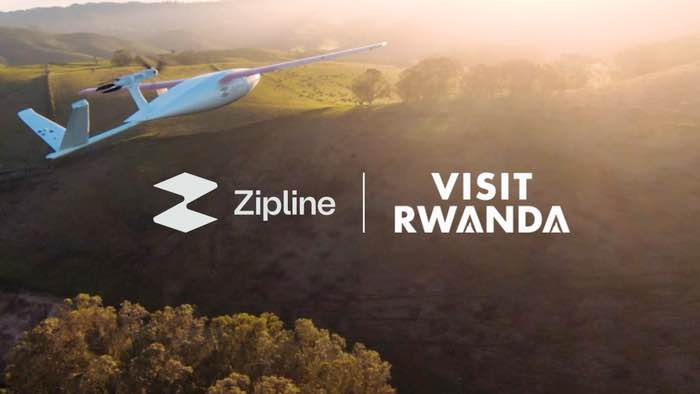
Zipline has expanded its partnership with its first customer — the Government of Rwanda — with a new delivery service designed to promote economic development and wildlife conservation. In partnership with the Rwanda Development Board (RDB) Zipline will begin delivering products made by local artisans directly to guests at resorts and lodges.
The new partnership will help fund conservation of crucial ecological resources in Rwanda. Twenty percent (20%) of the fee paid for every delivery completed by Zipline within Rwanda’s tourism sector will go towards the expansion of Volcanoes National Park, an initiative to expand the protected habitat of Rwanda’s mountain gorillas and other endangered species.
This initiative expands on Zipline’s long-standing collaboration with the Government of Rwanda.
Since 2016, Zipline has partnered with the Ministry of Health, the Rwanda Agricultural Board, the National Child Development Agency, the Rwanda Biomedical Center and other agencies to improve access to blood, animal health products, human vaccines, childhood nutrition products and medical supplies through 24/7, on-demand logistics.
“We are elated to join forces with the Rwanda Development Board, broadening the horizons of our drone delivery services far beyond the realm of medical supplies,” says Pierre Kayitana, General Manager of Zipline Rwanda. “This initiative allows Zipline, in collaboration with handpicked ‘Made in Rwanda’ brands, to deliver local gifts directly to tourists even in the most remote corners of Rwanda.”
“Made in Rwanda” products include fashion and souvenir items created by a vetted list of local business owners. This initiative aims to boost local businesses, enhance the visibility of Rwandan products, and contribute to the growth of the nation’s creative economy. The delivery service will first be available to guests at high-end Wilderness resorts and the UMVA Muhazi Lodge.
“This partnership underscores our dedication to collaborating closely with private sector entities such as Zipline, to advance environmental conservation, stimulate economic development, and foster a culture of innovation,” says Francis Gatare, CEO of the Rwanda Development Board.
The partnership continues to position Rwanda as a global leader in embracing innovative solutions for the betterment of people and natural wildlife. (End)
